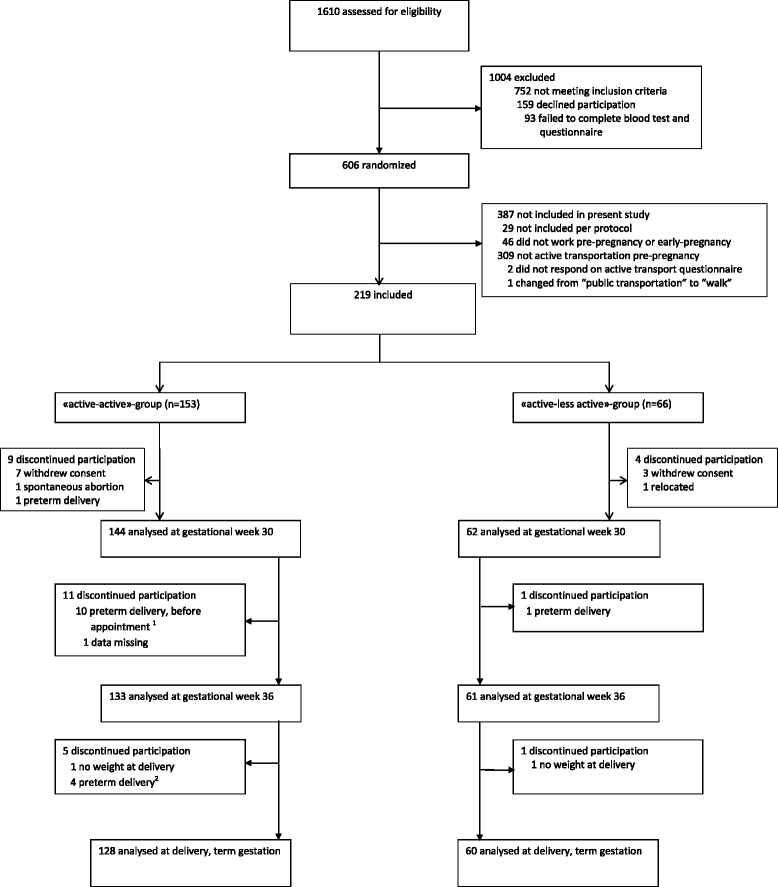Change in active transportation and weight gain in pregnancy
- PMID: 26818593
- PMCID: PMC4730776
- DOI: 10.1186/s12966-016-0332-7
Change in active transportation and weight gain in pregnancy
Abstract
Background: Pregnancy is characterised by large weight gain over a short period, and often a notable change in mode of transportation. This makes pregnancy suitable for examining the plausible, but in the scientific literature still unclear, association between active transportation and weight gain. We hypothesize that women continuing an active mode of transportation to work or school from pre- to early pregnancy will have a lower gestational weight gain (GWG) than those who change to a less active mode of transportation.
Methods: We analysed prospective data from the Norwegian Fit for Delivery (NFFD) trial. Between September 2009 and February 2013 606 women were consecutively enrolled in median gestational week 16 (range; 8-20). Of 219 women who used an active mode of transportation (biking, walking, public transportation) pre-pregnancy, 66 (30%) converted to a less active mode in early pregnancy ("active-less active" group), and 153 (70%) continued with active transportation ("active-active" group). Pre-pregnancy weight was self-reported. Weight at gestational (GA) weeks 16, 30, 36, and at term delivery was objectively measured. Weight gain was compared between the two groups. Linear mixed effects analysis of the repeated weight measures was performed including the group*time interaction.
Results: A significant overall group effect was observed for the four time points together ("active-active" group: 77.3 kg vs. "active-less active" group: 78.8 kg, p = 0.008). The interaction term group*time was significant indicating different weight gain throughout pregnancy for the two groups; the mean differences between the groups were 0.7 kg at week 16, 1.4 kg at week 30, 2.1 kg at week 36, and 2.2 kg at term delivery, respectively.
Conclusion: The findings indicate that active transportation is one possible approach to prevent excessive weight gain in pregnancy.
Figures

References
-
- Ng M, Fleming T, Robinson M, Thomson B, Graetz N, Margono C, et al. Global, regional, and national prevalence of overweight and obesity in children and adults during 1980-2013: a systematic analysis for the Global Burden of Disease Study 2013. Lancet. 2014;384:766–81. doi: 10.1016/S0140-6736(14)60460-8. - DOI - PMC - PubMed
-
- American College of Obstetricians and Gynecologists. Weight gain during pregnancy. Committee opinion no. 548. Obstet Gynecol. 2013; 121:210–12. - PubMed
Publication types
MeSH terms
LinkOut - more resources
Full Text Sources
Other Literature Sources
Medical

